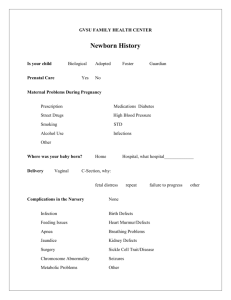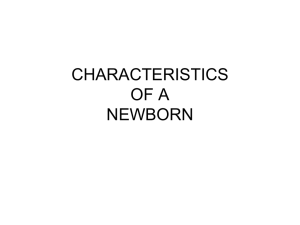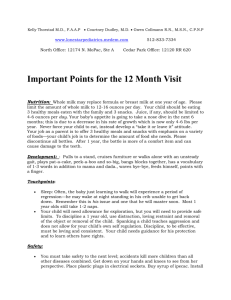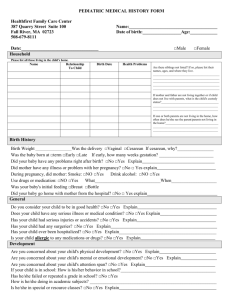First Visit - Piedmont Pediatrics
advertisement
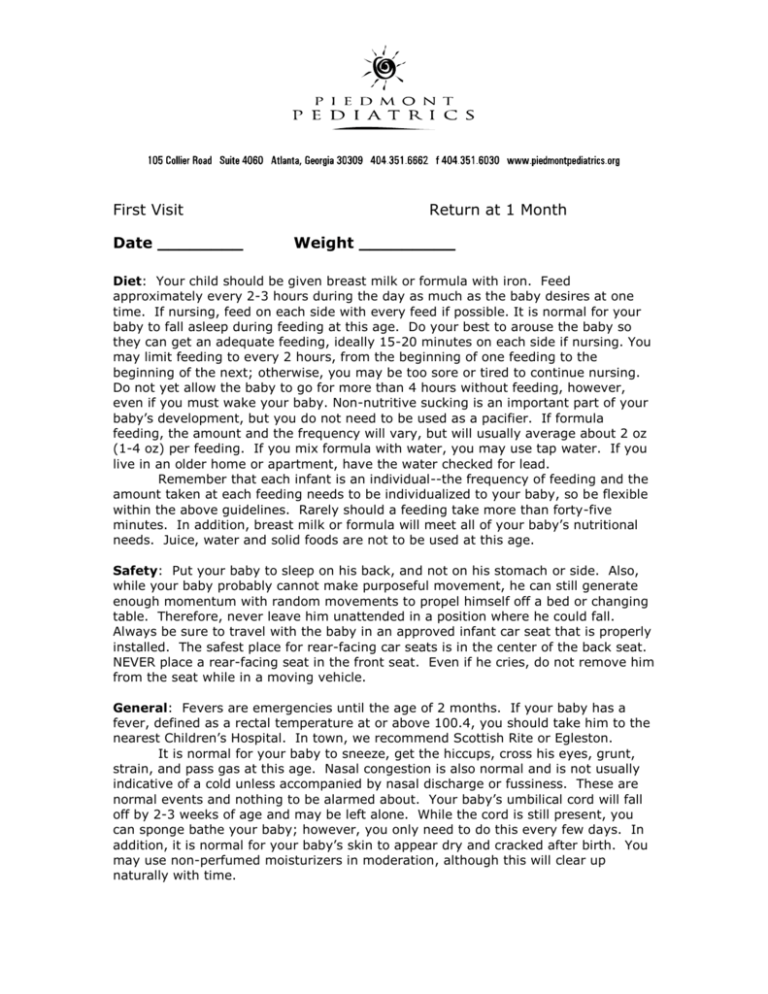
First Visit Date ________ Return at 1 Month Weight _________ Diet: Your child should be given breast milk or formula with iron. Feed approximately every 2-3 hours during the day as much as the baby desires at one time. If nursing, feed on each side with every feed if possible. It is normal for your baby to fall asleep during feeding at this age. Do your best to arouse the baby so they can get an adequate feeding, ideally 15-20 minutes on each side if nursing. You may limit feeding to every 2 hours, from the beginning of one feeding to the beginning of the next; otherwise, you may be too sore or tired to continue nursing. Do not yet allow the baby to go for more than 4 hours without feeding, however, even if you must wake your baby. Non-nutritive sucking is an important part of your baby’s development, but you do not need to be used as a pacifier. If formula feeding, the amount and the frequency will vary, but will usually average about 2 oz (1-4 oz) per feeding. If you mix formula with water, you may use tap water. If you live in an older home or apartment, have the water checked for lead. Remember that each infant is an individual--the frequency of feeding and the amount taken at each feeding needs to be individualized to your baby, so be flexible within the above guidelines. Rarely should a feeding take more than forty-five minutes. In addition, breast milk or formula will meet all of your baby’s nutritional needs. Juice, water and solid foods are not to be used at this age. Safety: Put your baby to sleep on his back, and not on his stomach or side. Also, while your baby probably cannot make purposeful movement, he can still generate enough momentum with random movements to propel himself off a bed or changing table. Therefore, never leave him unattended in a position where he could fall. Always be sure to travel with the baby in an approved infant car seat that is properly installed. The safest place for rear-facing car seats is in the center of the back seat. NEVER place a rear-facing seat in the front seat. Even if he cries, do not remove him from the seat while in a moving vehicle. General: Fevers are emergencies until the age of 2 months. If your baby has a fever, defined as a rectal temperature at or above 100.4, you should take him to the nearest Children’s Hospital. In town, we recommend Scottish Rite or Egleston. It is normal for your baby to sneeze, get the hiccups, cross his eyes, grunt, strain, and pass gas at this age. Nasal congestion is also normal and is not usually indicative of a cold unless accompanied by nasal discharge or fussiness. These are normal events and nothing to be alarmed about. Your baby’s umbilical cord will fall off by 2-3 weeks of age and may be left alone. While the cord is still present, you can sponge bathe your baby; however, you only need to do this every few days. In addition, it is normal for your baby’s skin to appear dry and cracked after birth. You may use non-perfumed moisturizers in moderation, although this will clear up naturally with time.
